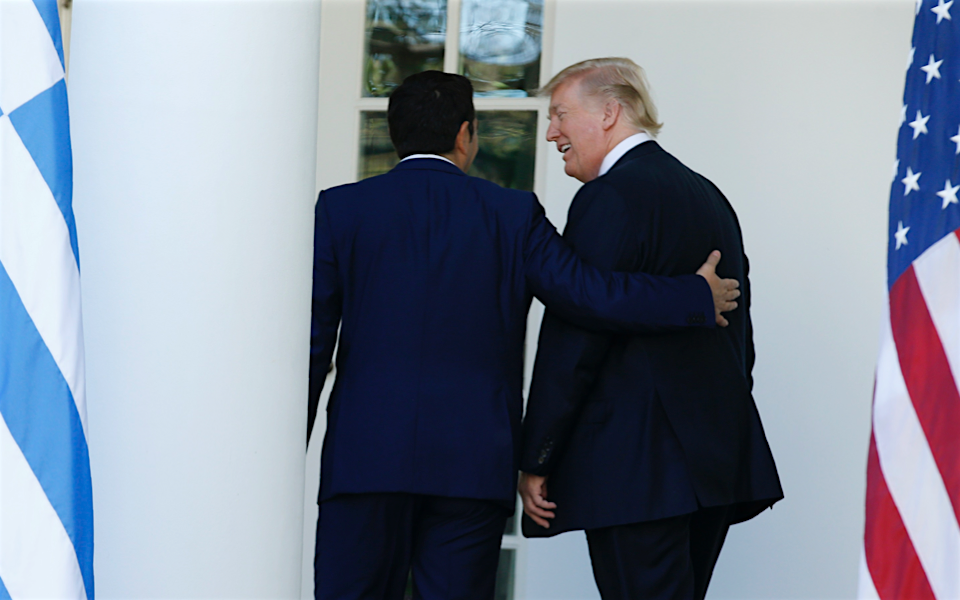The Greece-US-EU triangle

Alexis Tsipras’s visit to Donald Trump’s White House, which was marked by the Greek prime minister’s effusive praise for his host and the US, marks a new chapter in the traditional game between Greece and its allies – the United States and the European Union. This is mainly because it took place at a time when Greece, the US and the EU are undergoing radical change domestically and in their relationship with the rest of the world.
When Constantine Karamanlis set Greece on its path toward accession to what was then the European Economic Community, he expressed the conviction that in Europe Greece would find the security, democracy and respect that it had not won from previous patrons. Instead of being a dependent, Greece would be among equals, with all the member-states together constituting a major economic and political power. Karamanlis was clear about Europe’s potential but he was also expressing Greeks’ disappointment at US intervention in Greek politics and Washington’s inability to curb Ankara’s aggression.
The European Union did prove a safe harbor, in which Greece developed in an unprecedented climate of democracy and prosperity. However, the debt crisis and the sudden dependence on reluctant European partners for assistance, accompanied by populist outbursts on both sides, poisoned the relationship. As the Europeans dithered about managing the crisis, the United States was keenly aware of the dangers that this problem could cause the international economy. But it was the Europeans, not the Americans, who in the end loaned huge amounts of money to Greece. So, whereas American officials may propose debt relief for Greece, this does not go down well with the leaders of the countries owed the money.
EU membership proved very valuable in mediating relations between Greece and Cyprus with Turkey but it, too, cannot control Ankara’s behavior. We see this in Turkey’s unpredictable actions in its relationship with the United States, the European Union, Russia and just about every country in the region. This goes some way toward explaining the warm climate in the meeting between Alexis Tsipras and Donald Trump, as well as the government’s conviction that the country can sign a deal for major arms purchases from American companies.
It is not clear what Greece gains from this agreement, apart from the fact that a part of the Greek Left is abandoning decades of anti-Americanism. Nor is it clear whether Greece will be able to ignore its deep relationship with Europe for the sake of tactics devoid of strategy.





